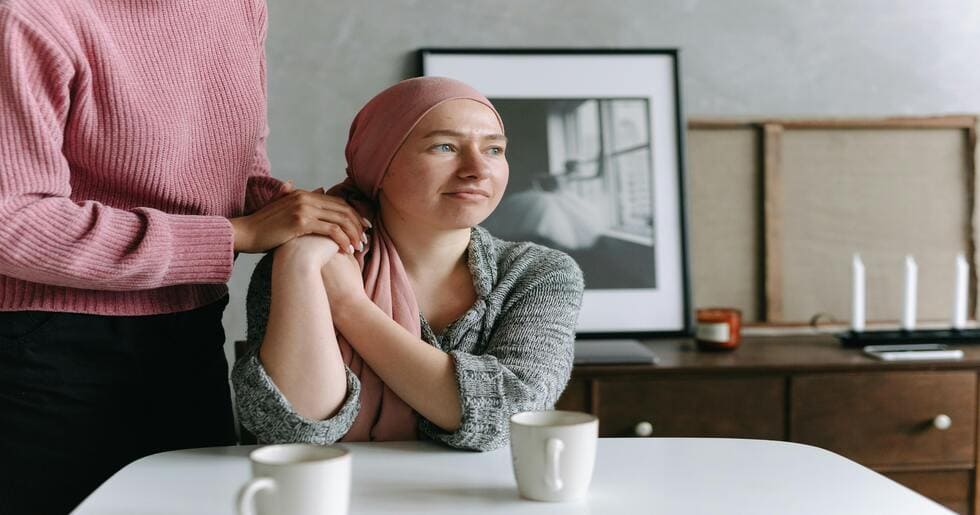Breast Cancer Risk Factors: Everything You Need to Know
Published on August 26, 2024By Laura M. (Contributor)
Contents


Everything you should know about risk factors of breast cancer
Most commonly seen cancer in women is Breast Cancer. It only provides a more comprehensive perspective on the risks entailed, which will help you take precautions beforehand. We will see here what are the principal risk factors to develop breast cancer, how it is possible prevent its development and some additional recommendations to take care of his health Mammary.
1. Main Risk Factors
Many factors may increase chances of developing breast cancer including:
- Female: You are a female (most cases occur in women over 50 years of age)
- One of the primary causes risk factor for breast cancer is a family history and genetic condition in having close some relatives diagnosed with disease, especially before menopause years as decades along genetics mutation like BRCA1 or BRCA2.
- A personal history: If you have previously been treated for breast cancer, ductal carcinoma in situ (DCIS) or lobular carcinoma in situ (LCIS), look at the risk.
2. Hormonal and Reproductive Factors
- Early menstruation and late menopause: More hormonal exposure to female hormones because the age of onset of your up periods (Menarche) was less than 12 years old, or if you did not stop having menstrual cycles until after the ages above.
- Oral contraceptives and hormone therapy: Oral contraceptive use over the long term, as well as combined menopausal hormonal hormones.
3. Lifestyle and Environmental Factors
This may be related to just life habits as well like:
- Alcohol use: Any alcohol consumption is a risk factor.
- Obesity and a sedentary lifestyle: Being overweight, especially after menopause, also raises the risk factor of lack of physical exercise.
- Radiation exposure: Women who had radiotherapy to the chest area before age 30.
Prevention Strategies
Lifestyle changes can significantly decrease the risk of breast cancer.
- Keep a Healthy Weight: Eat healthy and exercise often.
- Drink alcohol in moderation: Controlling the amount of alcoholic beverage you take can lower your chances.
- Do not smoke: Smoking by oneself and other people leads to many types of cancer, containing breast cancer.
- Breastfeeding: Breastfeeding may lower your risk of breast cancer.
A third strategy which is important to know the new research and discoveries for breast cancer prevention. Familiarising influenza education and awareness, can help you gain understanding of the risks and how to mitigate them while participating through cancer programs. Furthermore, leading an invariably active life and engaging in sports regularly makes you healthier which further lowers the risk of getting breast cancer.
Importance of Early Diagnosis
Diagnosis in early stage is essential for increase of survival rates:
- Self-Breast Exam (SBE): Regular self-examination can help in detection of early changes.
- Mammograms are not necessary in all women, and can lead to over-diagnosis; PSGs should thus follow medical guidelines surrounding mammography (and perhaps even more so if family members have been burdened by undue concern).
- Medical consultation Regular consultations with a doctor for clinical tests and conversation about your family, as well personal history.
- It is also important to be familiar with symptoms of breast cancer. The carcinomas were detected at an early stage after the women found lumps, changes in breast shape and size or nipple discharge. New imaging techniques, including 3D mammography and specialized forms of ultrasound can be used to allow for earlier diagnosis in many cases.
Advances in Treatments
Thanks to research and advances in treatments, there have been vast improvements on the options:
- Targeted therapies: Drugs that target cell functions specific to cancer growth, like PARP inhibitors.
- Immunotherapy: The use of the body's immune system to fight cancer.
- Breast-conserving surgery: Less invasive methods that preserve more breast tissue.
Resources and Support
Breast cancer resources and support groups:
- Connect with a community: support groups. Joining support groups can create instant friendship and relatability!
- Online information: Websites, such as the American Cancer Society or The Mayo Clinic provide extensive and current knowledge.
- Genetic counseling: When a woman has a strong family history, genetic counseling may be helpful in testing and disease prevention.
There is only this left, the psychological & emotional support apart from above all. We know you are more than your breasts, and Alberta is fortunate to have some incredible therapists who specialize in cancers like breast cancer. Evidence also suggests that complementary therapies, such as yoga and meditation can improve quality of life and reduce stress during treatment.
Conclusion
Knowing your breast cancer risk factors and living a healthy lifestyle have substantial effect in preventing the occurrence of this disease. Prevention and management of breast cancer require keeping yourself informed, screening regularly for it, as well as reaching out to support. It should be mentioned that prevention just starts with awareness and action, so beginning today further steps to protect your breast health.





